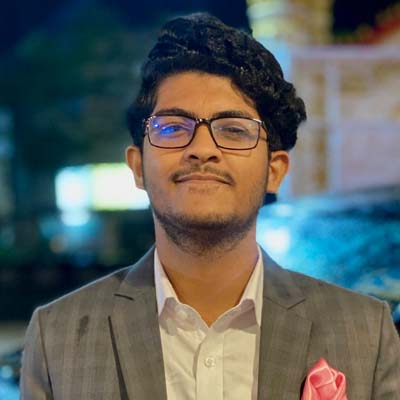
Md. Rifayet Hossain, from Chattogram, Bangladesh, is currently pursuing a degree in veterinary medicine at Chattogram Veterinary and Animal Sciences University. Over the past six years, he has actively engaged in social work and has contributed to various projects.
As an Agritech enthusiast, Rifayet firmly believes in the critical importance of agriculture and the indispensable role of farmers in sustaining the world's food supply. He advocates for the integration of technology into agriculture, recognizing the potential to enhance productivity and inspire future generations to prioritize agricultural innovation.
OMLAS Experience: “OMLAS has provided unique experiences and opportunities in my life. Over the past two months, each session has been a journey of exploration. Initially, balancing my university classes that coincided with the OMLAS sessions presented a challenge. However, as time passed, I seamlessly integrated them into a routine that I now find most fulfilling. Each session offers fresh insights previously absent from my formal education. The breakout sessions have proven to be extraordinary opportunities to learn about lives beyond borders, fostering a deeper understanding of diverse perspectives. These sessions have provided me with greater clarity in my own thinking.”
Project Idea
The project aims to enhance the productivity of small-scale farmers in Bangladesh by introducing improved livestock management practices and providing better market access. Through this initiative, high-yielding cattle breeds will be introduced, free veterinary services and vaccinations will be provided, market linkages will be established, and supply-chain problems will be reduced. The project is determined to increase farmers' income, aligning with SDG 2: Zero Hunger and SDG 8: Decent Work and Economic Growth; improve the food supply, SDG 3: Good Health and Well-being; and empower women, who make up 58% of the total agricultural workforce in Bangladesh, aligning with SDG 5: Gender Equality.